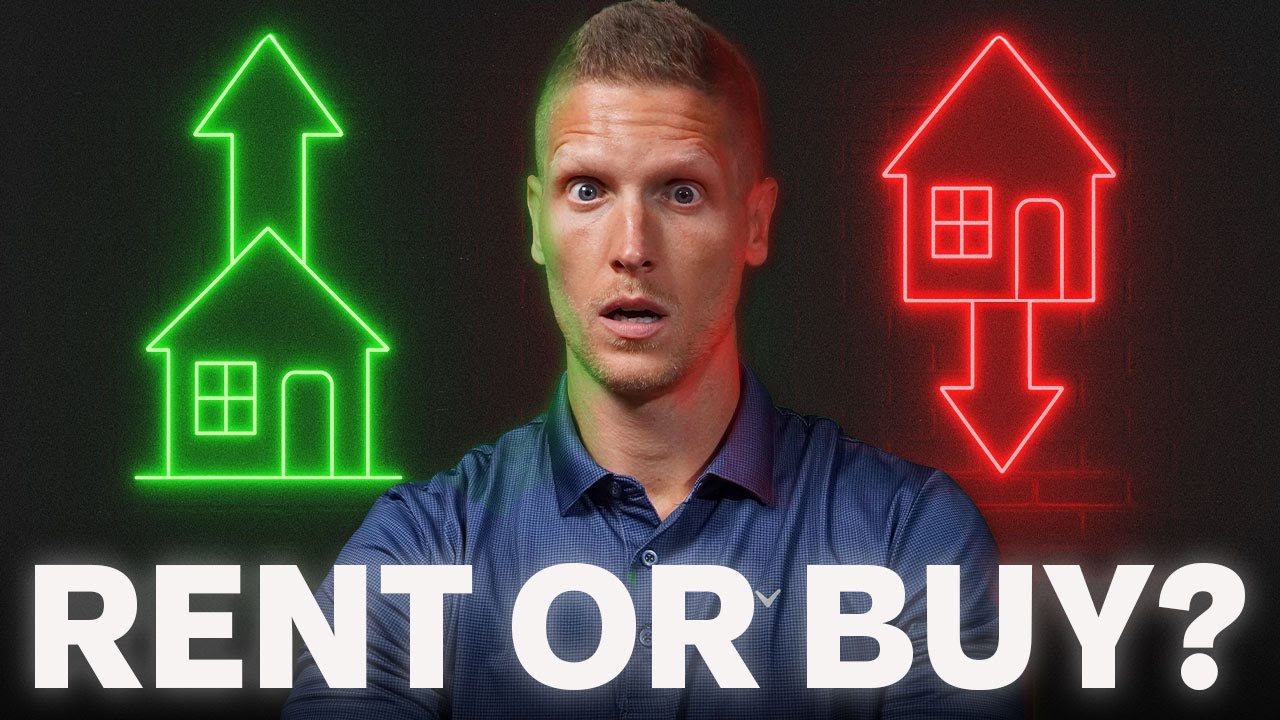This question is from Tim. Tim says, "Hey, I know the FOO (
Financial Order of Operations) allows us to have a 3-5 percent down payment on our first house, but would it still be good to save 20 or more so that I can lower the payments later and increase my savings later? I know you said I can do 3-5, but should I only do 3-5, or should I really go for 20? If I can get to 20, should I go for 20? How do I go about making that decision on what is the most advantageous thing in my circumstances to make sure I'm following the FOO the right way?"
Now, realize, and I couldn't remember because I was still in the proud papa moment, but Tim, was this for a first home? Because that 3-5 percent is for the first-time homebuyer. And realize, there is a difference, something that maybe I don't highlight enough. Three to five percent is just to get you in the door of home ownership. But there is a downside to it, and I see this in the comments section is PMI. A lot of times, banks, when they're going through the whole mortgage process, if you don't own 20 percent of your home's value, they will start charging an PMI (Private Mortgage Insurance). It's an insurance to protect the finance company from you defaulting on it. And a lot of people are very quickly... If you do 3-5 percent, you're hoping your house either appreciates or you pay it down over the years so that you can get rid of PMI. Because back in the day, old-school moment here, PMI was not deductible. At least now it is deductible. But I still stand by the fact, Tim, that... You know, I give you, it really depends upon where you are on the financial order of operations in the process. You know, because I've also seen people who had a windfall of money come their way, and they were young and went and put down big chunks of money on a house, even beyond 20 percent. But then they didn't have their emergency reserves, weren't funding their Roth IRAs, weren't doing all the things. So, you need to have more of a full, complete picture. That's why I love the financial order of operations, is it lets you walk through the way you should look at money. So, Tim, I would say if you have the money and, because of your success, and you have already funded Roth and stuff, I still... I like 20. Sure. But it all depends upon what else you've got going on in the background. Three to five percent is supposed to be a gateway access point because I know homeownership is so hard these days.
I agree with everything that you said there. The only thing I would add to it, that I would encourage Tim to think about, if you've not downloaded our wealth multiplier, if you go to
moneyguy.com/resources, we have a wealth multiplier that shows you how powerful every dollar you have can be. It's the reason why you have these coups that say this one-dollar beer costs me 88 because we know what our money can turn into, especially when we're young, especially when we have a lot of time. The decision behind putting down 3-5 percent versus putting down 20 percent, I think once you solve for the rest, I'm following the
Financial Order of Operations. Whichever one is going to keep my mortgage payment, my housing cost less than 25 percent, it becomes an opportunity cost discussion. And you have to make the assessment for you. Where do I think if optimization is my goal? Because again, we have to let our goals drive the decision that we make. If optimization is my goal, where do I think that my dollars can be optimally used? So, it depends on... like mortgage rates right now. If I can go get a 6 percent mortgage rate, if I put an extra 17 percent down, extra 15 percent down on the house, I'm going to save that interest. I'm going to save that mortgage rate. Or if I had those dollars, that I could go deploy, might those dollars be able to work harder for me somewhere else. Now, I hate giving you this answer, but it's a spreadsheet calculation, and you have to make the assessment. You have to assign your specific variables to figure out, if you've done all the other things, and you're following the FOO and you've checked all the boxes, when it comes to your situation, what's the most optimum decision for me?
Yeah, it's no different if you're... If Tim, if you're in that moment of abundance, meaning you've got a lot of money coming in, good job, you have assets in the bank. This is no different than when, like, we tell you 23/8 for buying a car. It's so that you have reliable transportation. But if you are living this abundant life, still paying cash for a car is the ideal. No different than when you buy a house. If you're living in abundance, especially with interest rates being over 6 percent, 20 percent is the ideal because it avoids a lot of the hassle with the banks, the underwriting, and the PMI. But we try to create a system that allows reality to kind of sit in inside there, too, because there's a lot of the system... The system gets harder as the process of society and access to cash and other things. You've got to have things that allow you to move within the system, and that's what we've tried to create. Love it.














